Mater Dei's Science Department
SAMPLE SCIENCE PATHWAYS
The Mater Dei High School Science Department offers a wide variety of courses to suit each student’s needs and college and career goals. In order to help students navigate our courses, the Science Department has devised the following sample pathways. Each includes at least one Life Science and at least one Physical Science. Please note that these are only samples and there are several other options to fit the unique needs of each student. Always consult your School Counselor when planning a course of study. All Science courses are UC/CSU approved courses unless otherwise indicated.
NOTE: Students will be placed into a Science course based on prerequisites. In some cases, students may wish to request a different course after reading the course descriptions and discussing this decision with parents and their School Counselor.
- CP - Designates College Prep level is offered
- HN - Designates Honors level is offered
- PR - Designates Principles level is offered
- AP - Designates Advanced Placement level is offered
- DE - Designates that the course may be taken as Dual Enrollment (with a pairing course)
- * - Indicates the course may be taken for advance,ent over Summer School at Mater Dei to move ahead in the pathways.
COURSE PATHWAY: ENGINEERING OR COMPUTER SCIENCE INTEREST
|
Path |
Freshman |
Sophomore |
Junior |
Senior |
Recommended |
|
Designed for students interested in Engineering or Computer Science |
Biology CP, HN |
Chemistry *CP, HN |
Physics CP, AP |
Physics CP, AP (AP can be taken after CP) |
Robotics Competitive Team |
|
Elective |
Intro to Coding |
Robotics & Engineering |
Hn Robotics & Engineering 2 |
AP Computer Science Principles |
|
COURSE PATHWAY: MEDICAL FIELD
|
Path |
Freshman |
Sophomore |
Junior |
Senior |
Recommended |
|
Designed for students with an interest in the Medical Field |
Biology CP, HN |
Chemistry *CP, HN |
Chemistry *CP, HN |
Physics CP, AP |
Pre-Med Club |
COURSE PATHWAY: MARINE BIOLOGY, ANIMALS, OR ENVIRONMENTAL SCIENCE
|
Path |
Freshman |
Sophomore |
Junior |
Senior |
Recommended |
|
Designed for students with an interest in Marine Biology, careers with animals, or environmental science |
Biology CP, HN |
Chemistry *CP, HN |
Chemistry *CP, HN |
Physics CP, AP |
Many environmental and animal-related clubs are offered |
COURSE PATHWAY: BIOTECHNOLOGY
|
Path |
Freshman |
Sophomore |
Junior |
Senior |
Recommended |
|
Designed for students with an interest in Biotechnology |
Biology CP, HN |
Chemistry *CP, HN |
Chemistry *CP, HN |
Biotechnology |
Biotechnology Certificate Program |
COURSE PATHWAY: CRIME SCENE INVESTIGATION OR CRIMINAL LAW
|
Path |
Freshman |
Sophomore |
Junior |
Senior |
Recommended |
|
Designed for students with an interest in crime scene investigation or criminal law |
Biology CP, HN |
Chemistry *CP, HN |
Chemistry *CP, HN |
Forensic Science |
Mock Trial team |
COURSE PATHWAY: CHEMISTRY OR PHYSICAL SCIENCE CONCENTRATION
|
Path |
Freshman |
Sophomore |
Junior |
Senior |
Recommended |
|
Designed for students with an interest in Chemistry or a Physical Sciences concentration |
Biology CP, HN |
Chemistry HN |
AP Chemistry |
Physics CP, AP |
|
ELECTIVE COURSES FOR STUDENTS WITH STEM INTEREST
|
Path |
Freshman |
Sophomore |
Junior |
Senior |
Recommended |
|
Elective classes designed for students with an interest in STEM fields (science, technology, engineering & math) |
Robotics & Engineering |
Robotics & Engineering |
Robotics & Engineering |
Robotics & Engineering |
Robotics competitive team |
COURSE DESCRIPTIONS
BIOLOGY, MARINE BIOLOGY, AND ZOOLOGY
521 BIOLOGY
This course covers biological concepts with an emphasis on problem solving. This college preparatory course is designed with an emphasis on laboratory safety and proper laboratory procedures. Students will use the scientific method to develop basic laboratory skills including the use of microscopes and completing full lab write-ups. Students will explore cell structure and function, processes of the cell, genetics, biotechnology, and evolution using a variety of hands-on labs and group projects.
NOTE: This course requires participation in animal dissections.
520 HONORS BIOLOGY
This accelerated course covers biological concepts in depth, with an emphasis on higher developmental thought processes and problem solving. It includes a study of the use of the scientific method, biochemistry, cell structure and function, cell metabolism, cell division, genetics, DNA replication, protein synthesis, biotechnology, evolution, and comparative animal systems. In order to facilitate learning and build science skills, students will apply these concepts to a variety of hands-on labs and will engage in inquiry-based projects.
NOTE: This course requires participation in animal dissections.526 ADVANCED PLACEMENT BIOLOGY
This course extends in breadth and depth the biological concepts presented in the Biology/Honors Biology course to a level of study commensurate with a second year course in college Biology and a Biology lab course for college Biology majors and prepares the student to take the Advanced Placement Exam in Biology.
This course of study emphasizes the development of college level science reading, group discussions, laboratory skills, problem solving, and expository science writing in preparation for the Advanced Placement Exam in Biology.
This course follows the Advanced Placement Biology standards as outlined by the College Board. The course focuses on the four “Big Ideas'' that unite all of biology (evolution, energy, information, and interactions). The course also emphasizes the application of seven “Science Practices'' that are essential across scientific disciplines. These include interpreting models and representations, mathematics, questioning, data collection, data analysis and evaluation, understanding explanations and theories, and making connections.
Many of the science practices require the application of mathematics. As a result, this course offers students the chance to practice the high-level math skills that they will need for success on the Advanced Placement Exam and in college science courses.
NOTE: A minimum of 25 students are required for this class to be offered. All students are required to pay for and take the Advanced Placement Exam.
525 HONORS MARINE BIOLOGY
The material in this class lays a foundation for students who are interested in focusing on science in college, particularly in the marine sciences, climatology, ecosystems, or organismal studies. This advanced course examines the marine environment in detail, with a focus on data analysis, laboratory work, and projects while addressing topics throughout the class.
The course covers all topics integral to gaining an understanding of marine systems, such as: Oceanography, including ocean layering, ocean chemistry, current dynamics and ocean mixing, climate patterns, tides, and wave formation; A detailed exploration of marine life, including algae, primitive and advanced invertebrates, cartilaginous and bony fishes, marine reptiles, marine birds, and marine mammals; The ecology of the ocean, including food webs, coastal ecosystems, nearshore ecosystems, and pelagic ecosystems; A study of the impacts humans have on marine environments, such as plastic pollution, eutrophication, overfishing and overharvesting, bycatch, noise pollution, and others. This course will have field trips with hands-on lab work (highly encouraged) and in-class dissections (required).
535 ZOOLOGY
The course will focus on the kingdom of Animalia and will build on the previous knowledge from the student’s Biology course. The students will be engaged with hands on learning of the different phyla (Sponges, Jellyfish, Flatworms, Roundworms, Mollusks, Crustaceans, Fish, Reptiles, Birds, and Mammals) within the Animalia kingdom with a focus on the evolutionary and ecological relationships of the organisms between themselves and their surroundings. A major emphasis will be placed on comparative anatomy, laboratory studies (including dissections of organisms as well as ecological surveys), natural history, and ecological/ phylogenetic relationships. Much of the course will be built around designing and implementing laboratory inquiries, collecting and analyzing data, and presenting their findings to their peers.
*This course will require participation in multiple animal dissections.
CHEMISTRY
532 CHEMISTRY
This physical science course with laboratory and demonstrations studies the basic laws of chemistry. The course emphasizes problem solving skills and analysis, structure of the atom, modern atomic theory with quantum mechanics, periodic law, chemical bonding, balancing chemical equations, stoichiometry, states of matter including gas laws, solutions, acid/base chemistry, thermodynamics, equilibrium and kinetics. The laboratory portion of this course emphasizes data collection and analysis and students are expected to submit written college style lab reports to emphasize and develop critical thinking skills and scientific writing.
531 HONORS CHEMISTRY
This accelerated course goes into more depth and places an emphasis on higher developmental thought processes. It includes study of the basic laws of chemistry. Atomic theory, the periodic law, chemical bonding, balancing chemical equations, gas laws, stoichiometry, acids, bases, kinetics, equilibrium, and redox reactions are covered. This class includes demonstrations and accelerated laboratory exercises. This lab science course will involve lab set-up and study in class, as well as college style lab reports.
533 AP CHEMISTRY
This college-level Chemistry course is designed to be taken after successful completion of Honors Chemistry. This course will prepare the student to take and pass the AP Chemistry exam in May. Students will use an AP Chemistry textbook, perform numerous advanced laboratory experiments and prepare written college style lab reports as required by the College Board. Laboratory will be 25% of this course. Students are expected to keep a detailed laboratory notebook where data collection, computations and analysis are emphasized. The course of study will follow the standards set by the College Board for AP Chemistry. Coursework will encompass the 6 big ideas as outlined in the College Board AP website. They are: (1)Elements are the fundamental building materials of matter and matter can be understood in terms of arrangements of atoms; (2)Chemical and physical properties of materials can be explained by the structure and the arrangement of atoms and the intermolecular forces between them; (3)Changes in matter involve the breaking of and rebuilding of atomic bonds; (4)Rates of reactions are dependent upon the kinetic molecular theory and molecular collision model involving the concentrations of those molecules; (5)Predicting changes in matter is energy dependent and can be explained using the laws of thermodynamics and equilibrium; (6)Intermolecular and Intramolecular forces are in dynamic equilibrium and are affected by initial conditions and external variances of the system. In addition, the 7 Science Practices for AP Chemistry as outlined by the College Board will be emphasized during this course.
HUMAN ANATOMY AND PHYSIOLOGY
542 HUMAN ANATOMY AND PHYSIOLOGY
This course is an in-depth study of the structure and function of the systems of the human body. This course is designed for anyone who wants to learn about the human body, but is of particular interest to those considering a health related profession. Each body system will be studied in terms of organizational levels, starting at the cellular level and proceeding through to an analysis of specific organ systems. Students will learn about body organization, the tissues of the body, and study the integumentary, skeletal, muscular, nervous, cardiovascular, immune, respiratory, digestive, urinary, reproductive, and endocrine systems in more detail. Emphasis will be devoted to the structure and functions of various organ systems to ensure recognition of the coordinated homeostatic functioning of the human body. This is a college preparatory lab science course. Laboratory work will be required and heavily
emphasized, and may include anatomical dissection of the brain, eye, and fetal pig. Hands-on laboratory practicums serve as additional assessments to the curriculum.
Note: This course requires participation in animal dissections.
543 HONORS ANATOMY AND PHYSIOLOGY
This course is preparation for advanced biological studies, premedical studies, biomedical nursing and other health/medical field based careers. This course examines the detailed inner workings of the human body, specifically the tissues, integumentary, skeletal, muscular, nervous, cardiovascular, immune, respiratory, digestive, urinary, reproductive and endocrine systems, as well as joints and movement. Each body system will be studied in terms of organizational levels, starting at the cellular level and proceeding through to an analysis of the specific organs and their functions. Emphasis will be devoted to the structure and functions of these various organ systems to ensure recognition of the coordinated homeostatic functioning of the human body. Diagrams of macro and microscopic anatomy will be used to display the various levels of anatomical organization, as well as the physiological reasoning behind it. Practicums will serve as additional assessments to the curriculum.
Case studies, including diseases, genetic disorders, and bioethical issues of the human systems will be a supplementary key to integrating knowledge through application. Laboratory work will be required and heavily emphasized, which may include anatomy dissection of a fetal pig, cow femur, sheep eye, brain, heart and kidney.
Possible Supplementary Co-curricular Activities/Field Trips: CPR & AED Red Cross certification programs, Stop the Bleed certification program, visit to St. Joseph’s Hospital for a hands-on experience with the Da Vinci robot and exploring Bodies the Exhibition. Scrubs for a Day: Surgeons of the Future at UCI Medical School, Urology Department; Visiting the Orange County Medical Examiners/Coroner’s Office; Visiting UCI’s Medical school to follow interns and residents; Visiting UCI’s Medical School to observe cadaver dissections.
Note: This course requires participation in animal dissections. Additionally, this course requires a small lab fee to cover the certification activities done in class. The students will receive an official CPR & AED Red Cross certification, as well as a Stop the Bleed Certification.
PHYSICS
544 PHYSICS
This course will utilize the student’s mental processes of logic and problem solving and knowledge of mathematical manipulation.
Physics is a fundamental science. In depth studies of other sciences are based upon physics concepts. It is the design of this course to enable the students to develop a method of solving problems that will involve more than just using the chapter equations to solve problems. The course covers Newtonian mechanics, work, energy, sound, light, electricity, and magnetism. Upon successful completion of this course, students may choose to take Advanced Placement Physics.
546 ADVANCED PLACEMENT PHYSICS 1
This course covers topics such as Newtonian mechanics, rotational motion, work, energy, power, and momentum in both linear and rotational systems using Algebra and Trigonometry as its basis.
This makes it more closely match the AP 1 curriculum as electricity and magnetism is in AP 2. The course requirement is fine.
AP PHYSICS C: MECHANICS
AP Physics C: Mechanics covers topics such as Newtonian mechanics, rotational motion, work, energy, power, and momentum in both linear and rotational systems using Calculus as its basis.
SPORTS MEDICINE
536 SPORTS MEDICINE
This comprehensive course focuses on the area of health and medicine that applies to the prevention, recognition, management and rehabilitation of sports-related injuries. In addition, it introduces and helps to prepare the students for the professions of athletic training, physical therapy and exercise physiology, as well as other career options. This course will provide an opportunity for the study and application of the components of sports medicine including, but not limited to: educational pathways and careers, prevention and recognition of sports-related injuries, evaluation and immediate care of athletic injuries, rehabilitation skills, taping and wrapping techniques, sports psychology, nutrition, general fitness and conditioning, emergency management, response and care, substance abuse, stress and wellness, anatomy and physiology of various body systems, professionalism, ethics and legal considerations.
Students will also have the opportunity to earn CPR, AED and first-aid certifications, as well as exposure to expert guest speakers from the various specialties of sports medicine. Additionally, there will be case studies used throughout the course to promote the growth of foundational knowledge, possible internship and field trip opportunities, as well as required lab hours spent observing activities in athletic training and sports facilities.
Note: This course requires a small lab fee to cover the certification activities done in class. The students will receive an official CPR & AED Red Cross certification, as well as a Stop the Bleed Certification.
CODING
1028 INTRO TO CODING
This year-long course is designed to introduce high school students to the fundamentals of computer science and cultivate their coding skills. Students will develop a solid foundation in programming through the exploration of essential concepts which include data types, sequencing, selection (if-else statements), iterations (for and while loops), algorithms, and basic data structures such as arrays and lists.
The course will commence with block coding, allowing students to grasp coding concepts visually before transitioning to writing text-based code using Swift and Python. Students will learn the syntax and structure of these programming languages, enabling them to express their ideas through code effectively. Emphasis will be placed on the development of effective debugging and collaboration skills, which are vital for successful programming.
To reinforce their coding skills, students will engage in captivating capstone projects, coding exercises, and labs that provide practical applications for their knowledge. Key projects will include developing an app using Swift, creating a computer game using block coding, programming Lego Mindstorms bots and Spheros, Arduino programming, and writing code to solve interactive puzzles in Swift Playgrounds. By the conclusion of this course, students will have a comprehensive understanding of coding concepts and will possess proficiency in foundational programming. They will have honed their debugging and collaboration skills, preparing them for advanced coursework such as AP Computer Science Principles and AP Computer Science A.
Note: Students are encouraged to take this course or Robotics and Engineering as a prerequisite to AP Computer Science Principles or AP Computer Science A.
1028H HONORS CODING
This year-long course is designed for high school students to develop algorithmic coding skills. Students will explore data types, sequencing, selection (if-else statements), iterations (for and while loops), algorithms, and data structures such as arrays and lists. In the first semester, students will use block coding in Scratch to learn the design and development lifecycle of programs. Emphasis will be placed on the iterative development process, effective debugging, and collaboration skills, which are vital for successful programming. They will transition to text-based coding in Swift, the official programming language for Apple products. In the second semester, students will use Python to develop code focusing on data science applications. To reinforce their coding skills, students will create capstone projects, coding exercises, and labs that provide practical applications for their knowledge. Key projects will include developing an app using Swift, developing a computer game using block coding, and developing Python projects. By the end of this course, students will have comprehensive knowledge of algorithm development and will possess proficiency in text-based programming. They will have honed their debugging and collaboration skills, preparing them for advanced coursework such as AP Computer Science A or USACO coding
ROBOTICS AND ENGINEERING
501 ROBOTICS AND ENGINEERING
Students are introduced to the engineering design process, applying math, science, and engineering standards to identify and design solutions to a variety of real-world problems. They work both individually and in collaborative teams to develop and document design solutions using engineering notebooks and 3D modeling software.
Students explore engineering tools and apply a common approach to the solution of engineering problems, an engineering design process. Utilizing the activity-project-problem-based (APB) teaching, students progress from completing structured activities to solving open-ended projects and problems that require them to plan, document, communicate, and develop other professional skills. Through both individual and team activities, projects, and problems, students apply systems thinking and consider various aspects of engineering. Students develop skills in technical representation and documentation especially through 3D computer modeling using a Computer Aided Design (CAD) application. As part of the design process, students produce precise 3D-printed engineering prototypes using an additive manufacturing process and 2D technical drawings. Student-developed testing protocols drive decision-making and iterative design improvements. In Robotics and Engineering, students apply computational methods to inform design by developing algorithms, performing statistical analyses, and developing mathematical models. Students build competency in professional engineering practices including project management, peer review, and environmental impact analysis as part of a collaborative design team.
504H HONORS ROBOTICS & ENGINEERING 2
Robotics and Engineering 2 explores the interaction between science, technology and engineering in the context of mechanical and electrical machines. Standards of physics including: motion, forces, rotation, energy & heat as well as electricity and magnetism are brought together in a hands-on engineering environment. Each of the STEM components of science, technology, engineering and mathematics are implemented consistently. The Arduino microcontroller provides the brains and communication framework necessary to control motors, displays and sensors. Students will engage in designing & building devices to both understand physics & mathematical concepts as well as the steps of the scientific method.
The purpose of this course is to provide students with an introduction to the engineering process including: engineering design, mechanical structure, electrical systems, computer programming and scientific principles. Students will understand that these components are linked together and interact as they take an idea or problem from its original conception to its final form.
In this hands-on lab course, students will explore the interaction between science, technology and engineering to solve mechanical, electrical and engineering design problems. Students will develop problem-solving skills and apply their knowledge of research and design to create solutions to real-world challenges such as energy sources and applications, machine systems, fluid power, testing the strength and durability of materials, understanding how things move and applying that knowledge to projects. Each of the STEM components of science, technology, engineering, and mathematics are implemented consistently throughout this yearlong course. Students will also learn how to document their work, communicate their solutions to their peers and members of the professional community, as well as have the opportunity to investigate engineering and other high-tech careers. Special Note: In order to receive credit for this honors course, all students must produce a career exploration report that will be completed in steps throughout the year.
COMPUTER SCIENCE
707 AP COMPUTER SCIENCE A
*This course counts as Elective credit towards Mater Dei High School graduation requirements
A comprehensive course that provides students with a strong foundation in object-oriented programming using the Java language, AP Computer Science A is designed to be equivalent to a first-semester, college-level computer science course and covers essential programming concepts and problem-solving techniques.
Students will master data types, objects, boolean expressions, and if-else statements to make decisions within their programs. They will also gain proficiency in utilizing various iteration structures such as for, while, and for-each loops, enabling them to manipulate data and control program flow effectively.
Another key aspect of the course is developing expertise in working with data structures such as arrays, arraylists, and 2D arrays which are fundamental to organizing and manipulating data efficiently. Also covered are various sorting algorithms such as bubble sort, selection sort, insertion sort, merge sort, and quick sort which simulate real-world scenarios. Inheritance, a core concept of object-oriented programming, will be extensively covered and students will understand how classes can inherit properties and behaviors from other classes, allowing for code reuse and facilitating modular design. Furthermore, students will be introduced to recursion, a powerful technique for solving problems by breaking them down into smaller, self-referential functions.
Throughout the course, students will have the opportunity to apply their knowledge through engaging coding assignments such as creating chatbots, drawing apps, and College Board approved labs. The primary goal of this course is to prepare students for the end-of-course AP Exam. Additionally, the course aims to prepare students for future careers in computer science, providing them with a solid foundation for further study and professional growth.
719 AP COMPUTER SCIENCE PRINCIPLES
*This course counts as Elective credit towards Mater Dei High School graduation requirements
AP Computer Science Principles offers a multidisciplinary approach to teaching the underlying principles of computation. The course will introduce students to the creative aspects of programming, abstractions, algorithms, large data sets, the Internet, cybersecurity concerns, and computing impacts. AP Computer Science Principles also gives students the opportunity to use current technologies to create computational artifacts for both self-expression and problem solving. Together, these aspects of the course make up a rigorous and rich curriculum that aims to broaden participation in computer science.
The course follows the Advanced Placement Computer Science Principles standards as outlined by the College Board. It focuses on seven “Big Ideas” that encompass foundational concepts of computer science: creativity, abstraction, data and information, algorithms, programming, the internet, and global impact. In addition, the course emphasizes six Computational Thinking Practices, which describe how students will explore the learning objective: connecting computing, creating computational artifacts, abstracting, analyzing problems and artifacts, communicating, and collaborating.
Students will explore how computer programs affect our society, economy, and culture. They’ll also build a solid foundation in programming fundamentals using Scratch and Python as the languages. Throughout this course, students will get practical experience with the tools, techniques, and concepts needed to build a basic program in Scratch and Python. Lessons take students through the process of designing a program, including brainstorming, planning, prototyping, and evaluating apps of their own. Additionally, they will learn user interface design principles, which is essential to programming and making great apps.
1105 AVIATION I
Course Length: Year
Grade Level: 9-12
A-G Designation: None
Prerequisites: None
Mater Dei's Aviation I class utilizes the high school curriculum of the largest aircraft nonprofit in the world, the Aircraft Owners and Pilots Association. This course will provide an introduction to flying, the history of aviation, aerospace engineering, unmanned aircraft systems and other recent updates in the industry. It will also dive into the subsectors of aviation in terms of innovation, real-world challenges, economics, and career opportunities.
OTHER
939 SCIENCE LAB ASSISTANT
This course is designed to provide experience for the students in working in the Laboratory setting while also developing skills as a future educator. The students will be rotated through various science classes/labs helping to prepare and take down lab experiments as well as facilitating students in the classroom while performing these experiments. Each student will be expected to teach 2 topics at least during the semester. The student may also be involved in cooperative learning activities in the science classes & tutoring. The student will also be expected to help with organization of equipment and other miscellaneous duties related to running a laboratory. NOTE: This course is a credit-only course; no letter grade will be given. This course is not a UC or CSU approved course.
MEET OUR EDUCATORS
-
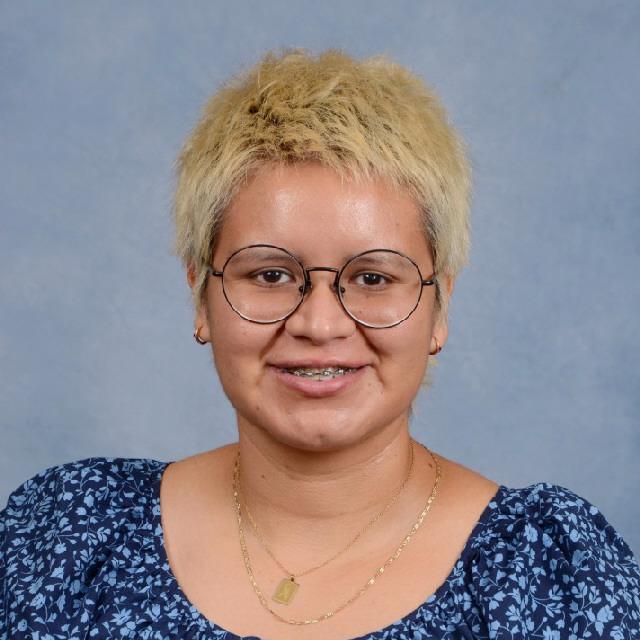
-
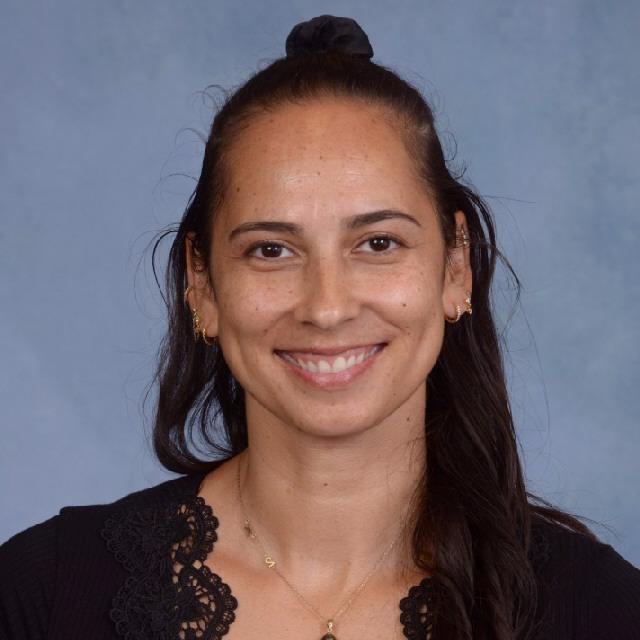 Mrs. Crystal Day-Chitwood Science Teacher/Assistant Coach Girls Volleyball
Mrs. Crystal Day-Chitwood Science Teacher/Assistant Coach Girls Volleyball -

-
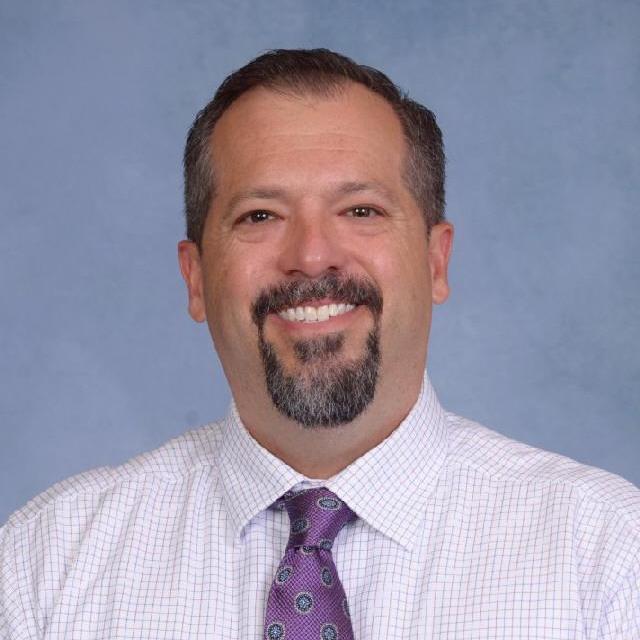
-
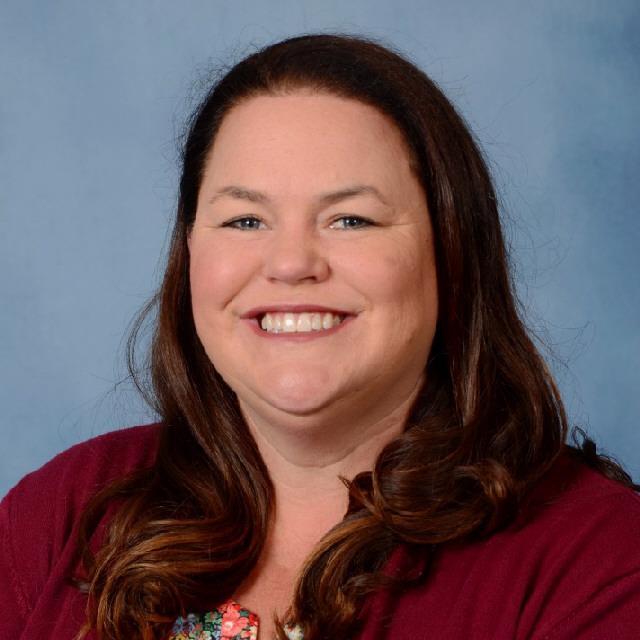
-

-
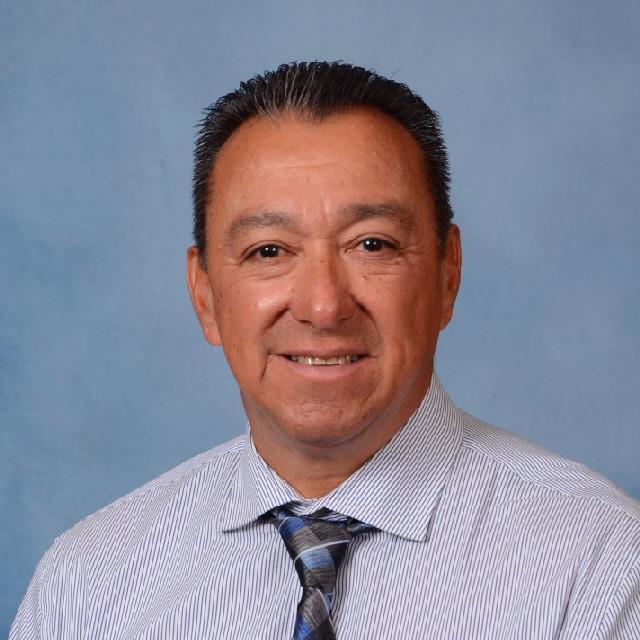 Mr. Rick Martinez '83 Science Teacher/Track & Field and Cross Country Head Coach
Mr. Rick Martinez '83 Science Teacher/Track & Field and Cross Country Head Coach -

-

-
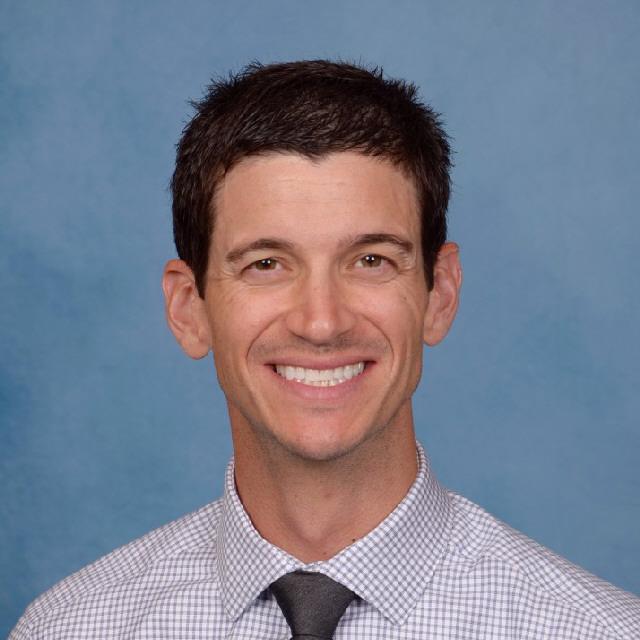
-
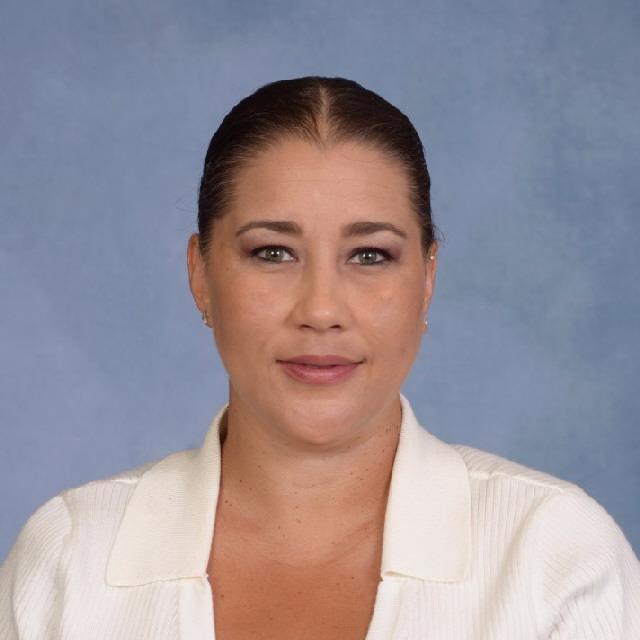
-

Science

The Mater Dei High School Science Department offers 24 courses to suit students’ needs and interests as well as college and career goals.
- Working closely with the Math Department, students can pursue pathways designed for those interested in engineering or computer science through our STEM Distinction program.
- Students can earn a Biotechnology Certificate of Proficiency making them eligible to work in a biotechnology lab after graduating from MD.
- Courses partner with doctors, hospitals, wildlife preserves, and government agencies, to provide students with connections to career experiences and unique field trip opportunities.
Full course descriptions below.